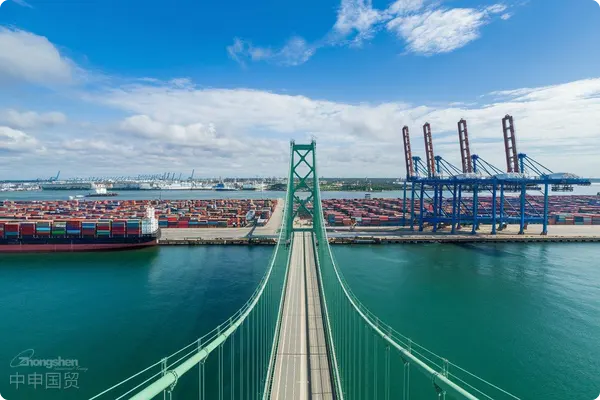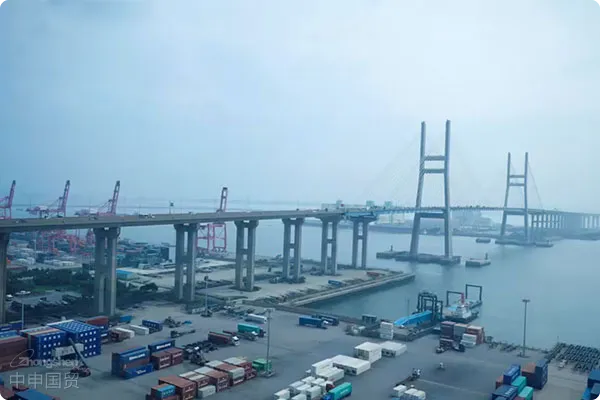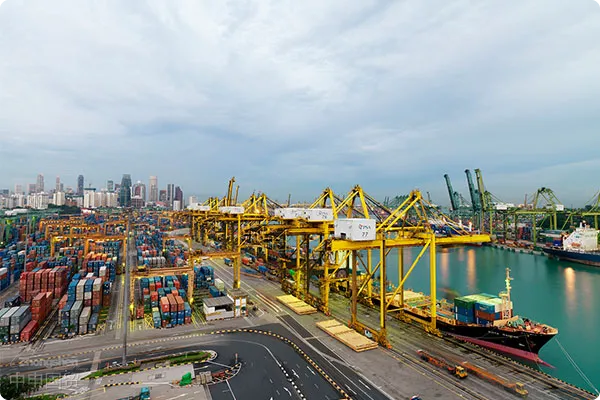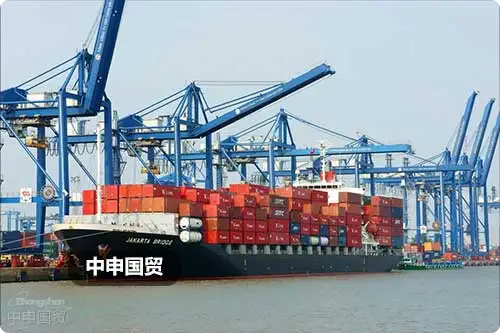- Shanghai Zhongshen International Trade Co., Ltd. - Two decades of trade agency expertise.
- Service Hotline: 139 1787 2118
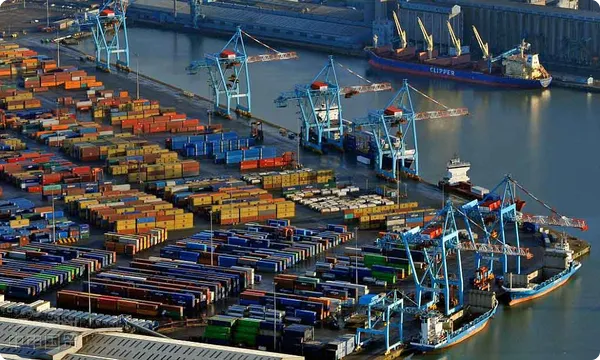
the tax - refund service has solvedExport Representationproblems for many enterprises. However, when enterprises choose an export agency tax - refund service, the charging standard is a key consideration. Understanding the composition, influencing factors of the export agency tax - refund charging standard and how to choose a cost - effective agency service are of great significance for enterprises to control costs and ensure the smooth progress of tax - refund.Export DrawbackI. Composition of the export agency tax - refund charging standard
This is the basic part of the export agency tax - refund charge. The agency provides a series of services for the enterprise, including processing of customs declaration forms, preparation of tax - refund declaration materials, communication and coordination with the customs and tax departments, etc., all of which are covered in the basic service fee. The amount of the basic service fee usually varies according to the scale of the enterprises export business. For example, for enterprises with a small annual export volume, the basic service fee may be relatively fixed within a certain range, because the agency needs to invest a certain amount of manpower and resources to handle the basic tax - refund process; while for large export enterprises, the basic service fee may be charged as a certain percentage of the export volume, and this percentage may fluctuate between 0.5% - 2%, because their business volume is large and the complexity is high, requiring more manpower and time costs.
Basic service fees
In addition to the basic service fee, if the enterprise needs special services, value - added service fees will be generated. For example, if the tax - refund business is processed urgently, the agency may charge an additional fee. This is because urgent processing requires the agency to adjust its work process and prioritize the enterprises business, which may involve overtime work, coordinating with various departments for urgent approval, etc. In addition, if the enterprises business involves the export tax - refund of special commodities, and the agency needs to conduct additional policy research and special declaration processes, value - added service fees will also be generated. The charging method of value - added service fees is more flexible, which may be a one - time fixed - amount charge or a charge according to a certain percentage of the additional workload or the amount involved.
Value - added service fees
II. Influencing factors of the export agency tax - refund charging standard
Enterprise export scale
The enterprise export scale is an important factor affecting the charging standard. As mentioned before, enterprises with a larger scale have a higher volume of export business, and the processing of tax - refund - related documents and data is more complicated. The agency may charge fees as a percentage of the export volume, and the percentage may be relatively low, because large - scale business can achieve economies of scale to a certain extent. While small - scale enterprises, although with a small business volume, still require the agency to invest basic manpower and resources, so they may be charged a relatively high fixed basic service fee or a fee at a higher percentage of a small amount of export volume.
Business complexity
CIF (Cost, Insurance and Freight):
The complexity of the business also significantly influences the charging standard. If the goods exported by an enterprise are subject to special regulatory conditions, such as requiring licenses, having complex inspection and quarantine procedures, or facing difficulties in commodity classification, the agency needs to spend more effort on handling related matters. This increases the cost of agency tax refund, thus leading to an increase in the charging standard. In addition, if an enterprise has multiple related-party transactions or export businesses involving complex financial arrangements such as internal transfer pricing of multinational companies, the agency faces greater challenges in ensuring the compliance of tax refunds and will correspondingly increase the charges.
Regional Differences
The economic development level, labor costs, and market competition conditions in different regions also affect the charging standard for export agency tax refunds. In economically developed regions, such as some active cities along the coast, labor costs are high, and operating costs such as office space rent are also high. The charging standard of agencies may be higher than that in less developed regions. However, there may also be more agencies in developed regions, with fierce market competition, which may prompt agencies to reduce charges to a certain extent or provide more value-added services to attract customers.foreign tradeIII. How to Choose a Cost-effective Export Agency Tax Refund Service
Compare Multiple Agencies
When choosing an export agency tax refund service, an enterprise should not only focus on the charging standard of one agency. It should widely collect the quotations and service contents of multiple agencies and conduct a detailed comparison. For example, although the basic service fee of some agencies is low, the value-added service fee is high; while the overall charge of some agencies may be relatively reasonable, and they provide more comprehensive value-added services, such as free policy consultation and regular tax refund progress reports.
Examine the Qualifications and Reputation of the Agency
In addition to the charging standard, the qualifications and reputation of the agency are of crucial importance. An agency with a good reputation can ensure the compliance and efficiency of the tax refund business. An enterprise can check the agencys years of operation, customer reviews, and whether it has relevant industry qualification certifications. An agency with many years of experience and a good reputation, even if its charging standard is slightly higher than that of some other agencies, may help the enterprise avoid many potential risks in the long run and bring higher cost-effectiveness.
Evaluate the Value of Value-added Services
An enterprise should evaluate the value-added services provided by the agency. For example, if the professional tax planning suggestions provided by the agency can help the enterprise optimize the tax refund plan and increase the tax refund amount, then even if the value-added service fee is high, it is worthwhile from the overall benefit perspective. Another example is that the foreign language translation service provided by the agency may be very valuable for enterprises exporting to countries with specific languages. Enterprises should also consider the value of these value-added services when considering the charging standard.
The charging standard for export agency tax refunds is a complex system affected by multiple factors. When choosing an export agency tax refund service, an enterprise should comprehensively consider the composition of the charging standard, influencing factors, and how to balance cost-effectiveness. By deeply understanding these aspects, an enterprise can ensure the smooth progress of the export tax refund business while controlling costs, thus gaining a greater competitive advantage in international trade.
Conclusion
In - depth Analysis of the Requirements and Standards for Export Agency Tax Refunds
Related Recommendations
? 2025. All Rights Reserved. 滬ICP備2023007705號-2  PSB Record: Shanghai No.31011502009912
PSB Record: Shanghai No.31011502009912
